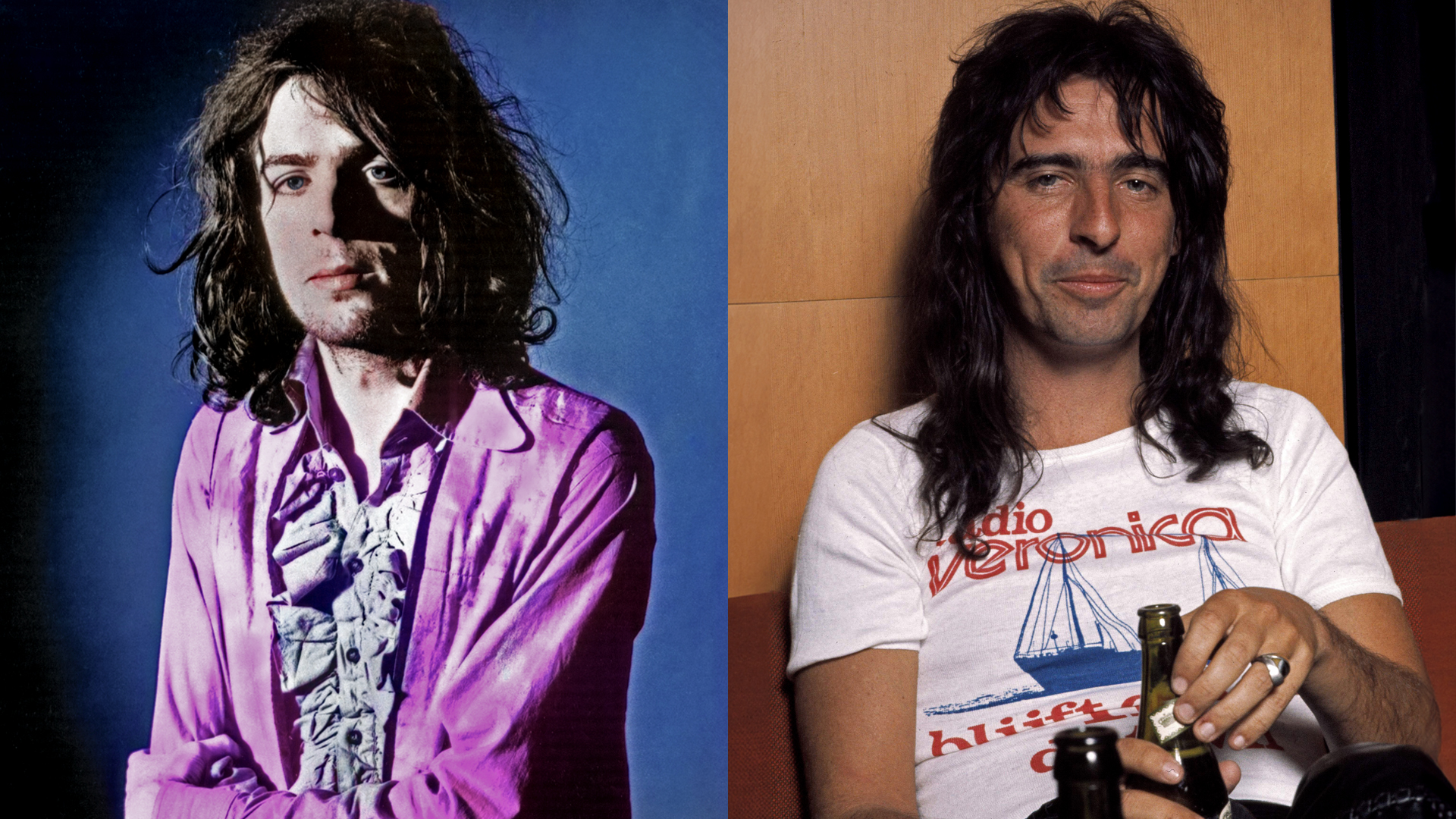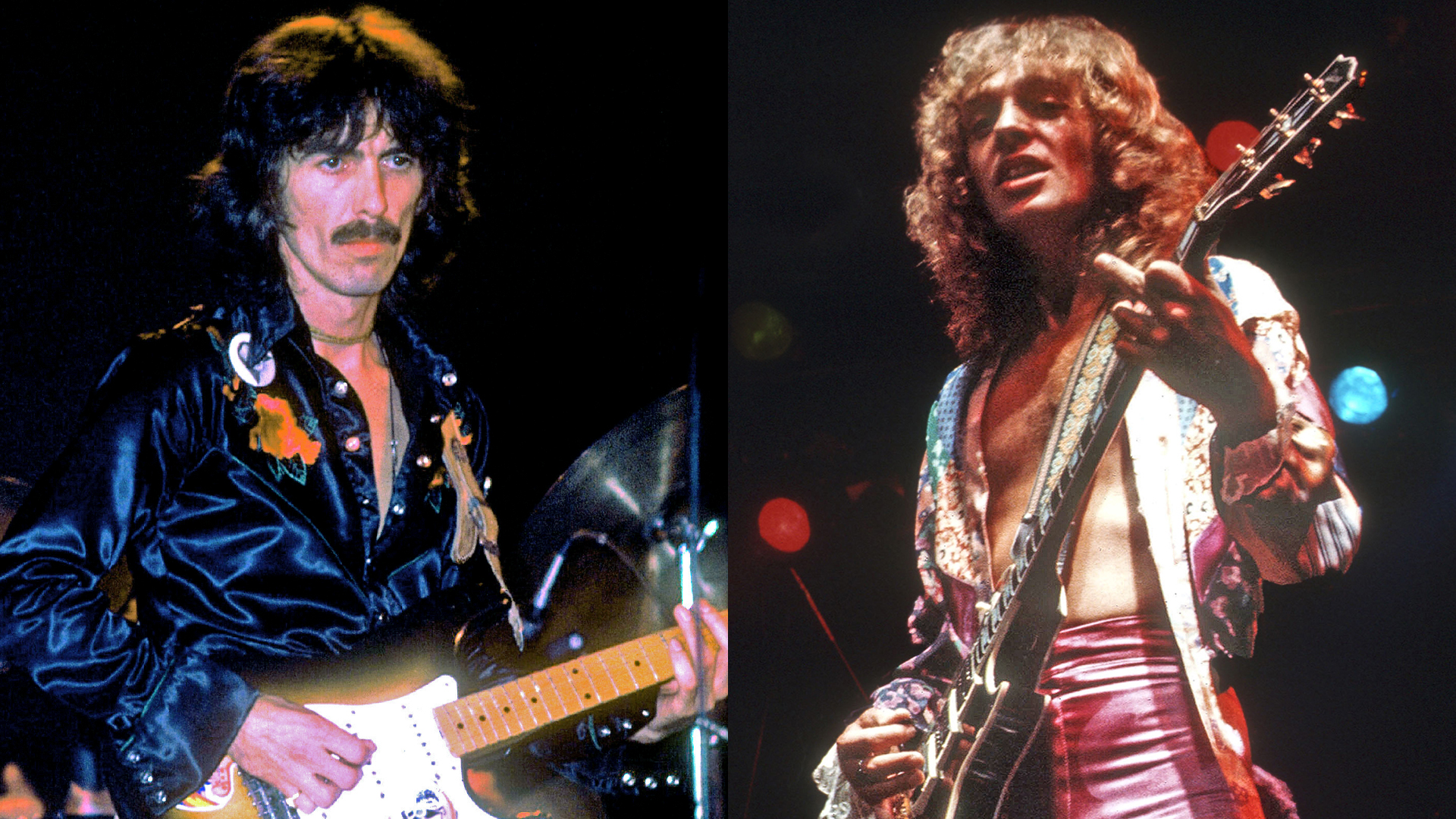“Floyd came into town, ran out of money, and ended up staying in our house.” Alice Cooper on living with Pink Floyd, mind-reading with Syd Barrett — and the pot-laced brownies that scored them a coveted gig
The two young groups were hungry for success, and their peculiar living arrangement produced some equally peculiar stories

The U.K.'s Pink Floyd and America's Alice Cooper band were trying to make names for themselves on the rock scene when their world's unexpectedly collided in Los Angeles in the late 1960s.
Floyd was in its early incarnation, and featured guitarist and singer Syd Barrett, keyboardist Richard Wright, bass guitarist Roger Waters and drummer Nick Mason. The group was making its maiden voyage to the U.S. to promote its debut album, The Piper at the Gates of Dawn. through a few appearances in clubs and on the TV show American Bandstand.
Alice Cooper and his band were two years away from releasing their first album, Pretties for You, and performing around L.A. as the Nazz, a name they were forced to abandon in 1968 when they discovered an East Coast band with that name — featuring Todd Rundgren — was signed to an Atlantic Records imprint. Like Floyd, the group was playing psychedelic rock, which is why they were interested in catching the Brits' show when they came to town.
"Not many people had heard of them, but we knew all about them,” Cooper told Classic Rock in 2022. "We had a copy of The Piper at the Gates of Dawn. They were a big deal to us because they had a record out — and we didn’t.
“So the Floyd came into town, ran out of money — like everyone else does in L.A. — and ended up staying in our house.”
Syd would be sitting there with a box of cornflakes in front of him, watching it the way I would watch television.”
— Alice Cooper
The group's financial difficulties were likely down to their frontman. Syd Barrett's drug use and undiagnosed mental health issues made him behave erratically, and led to the cancellation of numerous dates.
Cooper saw Barrett’s struggles firsthand.
All the latest guitar news, interviews, lessons, reviews, deals and more, direct to your inbox!
“Syd Barrett was just so out there,” Cooper says. “I’d get up in the morning and go into the kitchen, and Syd would be sitting there with a box of cornflakes in front of him, watching it the way I would watch television. We’d all sit around whispering, ‘How can anybody get that high?’
“But Syd was also very bipolar. We didn’t find out until later that he was half-high, half-insane. That’s a very bad combination.”
Cooper’s guitarist, the late Glen Buxton, who makes a posthumous appearance on the reunited Alice Cooper Band’s latest album, also reflected on his experiences with Barrett.
“He never talked, but we’d be sitting at dinner and all of a sudden I’d pick up the sugar and pass it to him, and he’d shake his head like, ‘Yeah, thanks,’” he recalls. “It was like I heard him say, ‘Pass the sugar.’
“It was like telepathy. That was the first time in my life I’d ever met anybody who could actually do that freely. And this guy did it all the time.”
Although Barrett was physically present for Floyd's appearance on American Bandstand, his mind was somewhere else entirely. He was practically motionless during the song. The band's show at the Fillmore Auditorium up in San Francisco didn't fare much better.
“Syd literally went onstage and stared into space,” Rick Wright later recalled (via Far Out). “[He] de-tuned all of his strings on his guitar, hitting it to make this god-awful noise.”
Ironically, Floyd’s drug-related antics had an unexpectedly positive effect on the Alice Cooper band. During Floyd's stay, Cooper's group scored an audition at Gazzarri's nightclub on the Sunset Strip, the same venue where Van Halen would get their break some seven years later. The group was excited, since a spot on the club's schedule would give them some much-needed exposure.
Thanks to Pink Floyd, they put on a memorable performance.
“We had an audition at Gazzarri’s, and Pink Floyd said they’d come down with us,” Cooper recalls. “They made brownies. They were totally laced with pot, of course.
“I was halfway through the show, and all of a sudden I was…oooooh…errrrrr… The world went that way. I fell off the stage, like, three times.
“We got the job, though. We were so whacked out that the guys at Gazzarri's said, ‘Okay, we’ll hire you!'”
We were so whacked out that the guys at Gazzarri's said, ‘Okay, we’ll hire you!'”
— Alice Cooper
It was also around this time that Cooper's group befriended the Doors, another act making waves on the L.A. scene. Doors guitarist Robby Krieger contributed a solo to the track "Black Mamba" from the Allce Cooper group's recently released comeback record. To complete the band's new revised lineup, they went in search of a guitarist as unique as Buxton, and found their man in Gyasi.
As for Pink Floyd, Barrett’s time in the band was coming to an end. He was ousted from the group the following year, and replaced by David Gilmour, who had filled in on dates when Barrett wasn’t up to the task. It all worked out fine for Floyd and Cooper. As for Barrett, following a brief solo career, he retired from music and maintained a private life until his death in 2006.
A freelance writer with a penchant for music that gets weird, Phil is a regular contributor to Prog, Guitar World, and Total Guitar magazines and is especially keen on shining a light on unknown artists. Outside of the journalism realm, you can find him writing angular riffs in progressive metal band, Prognosis, in which he slings an 8-string Strandberg Boden Original, churning that low string through a variety of tunings. He's also a published author and is currently penning his debut novel which chucks fantasy, mythology and humanity into a great big melting pot.

